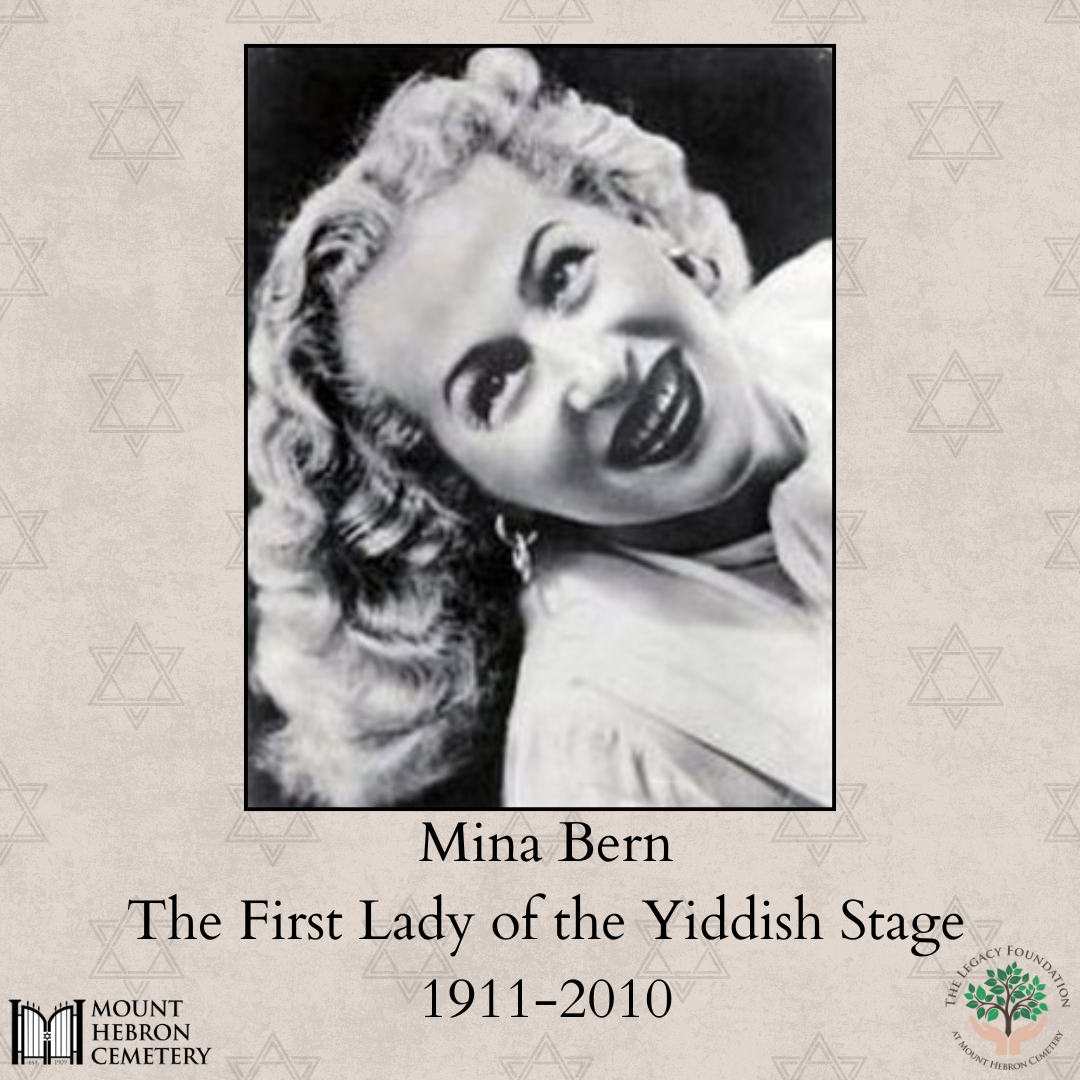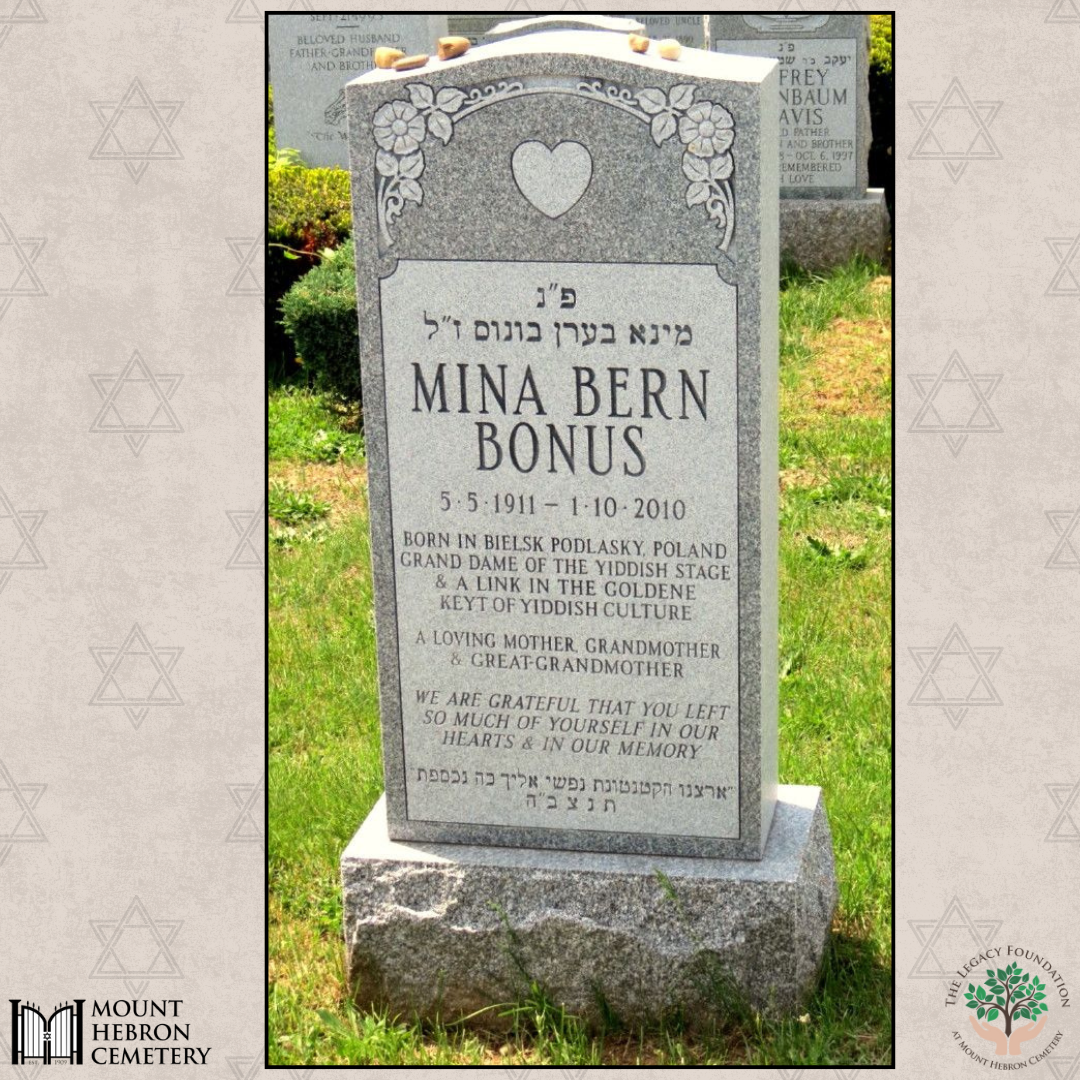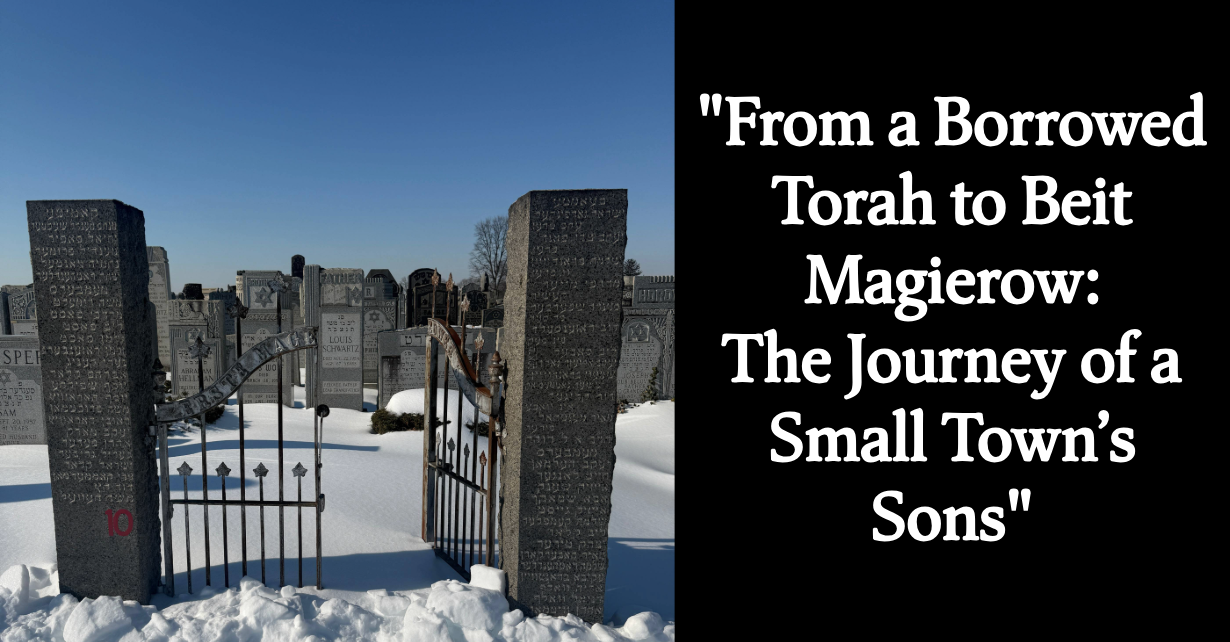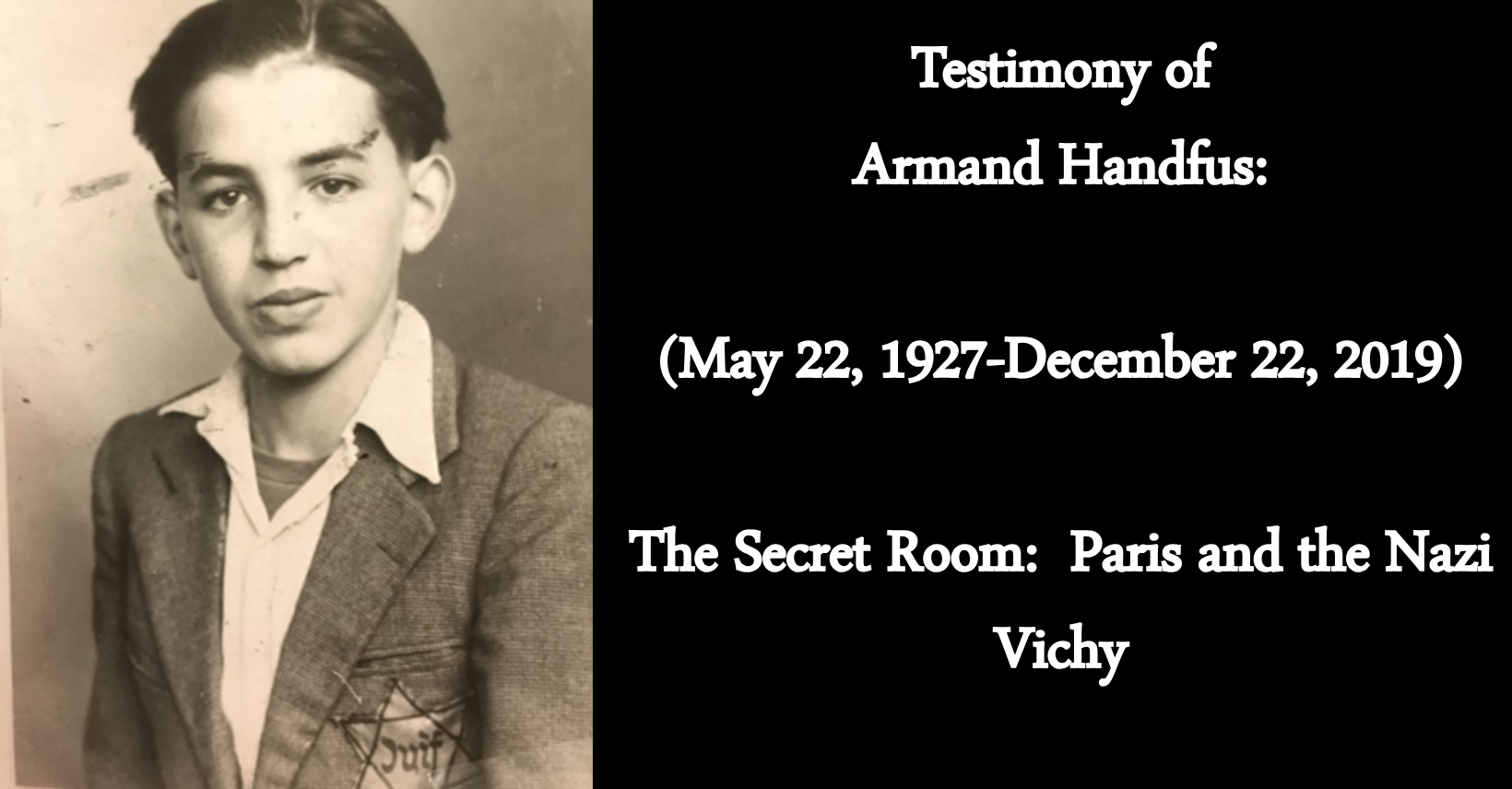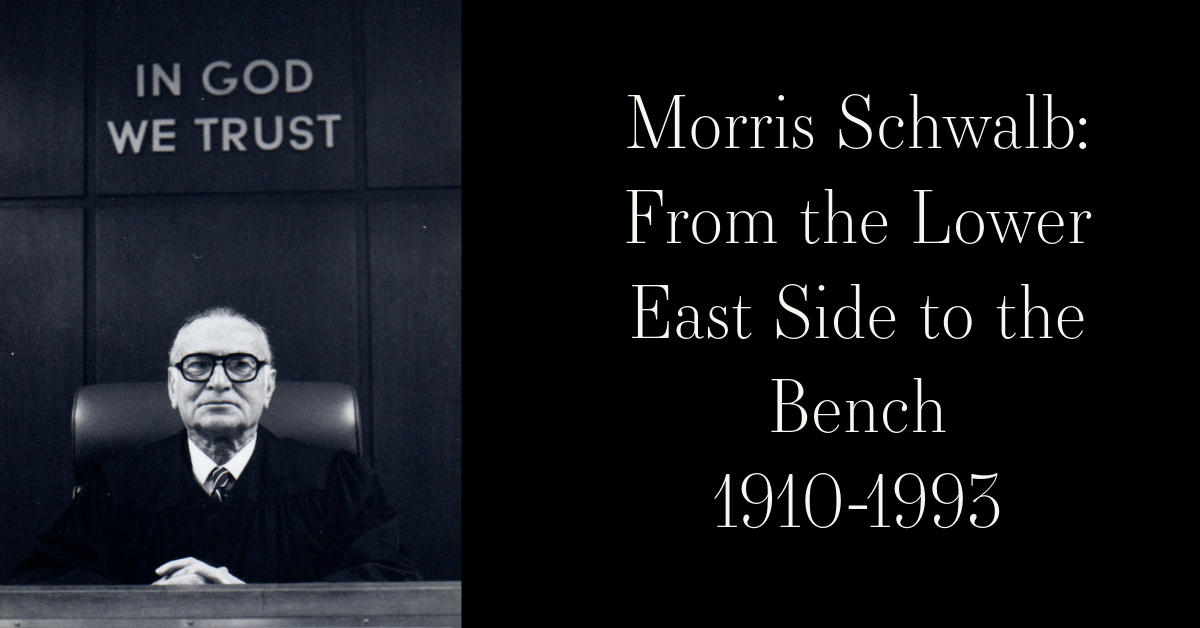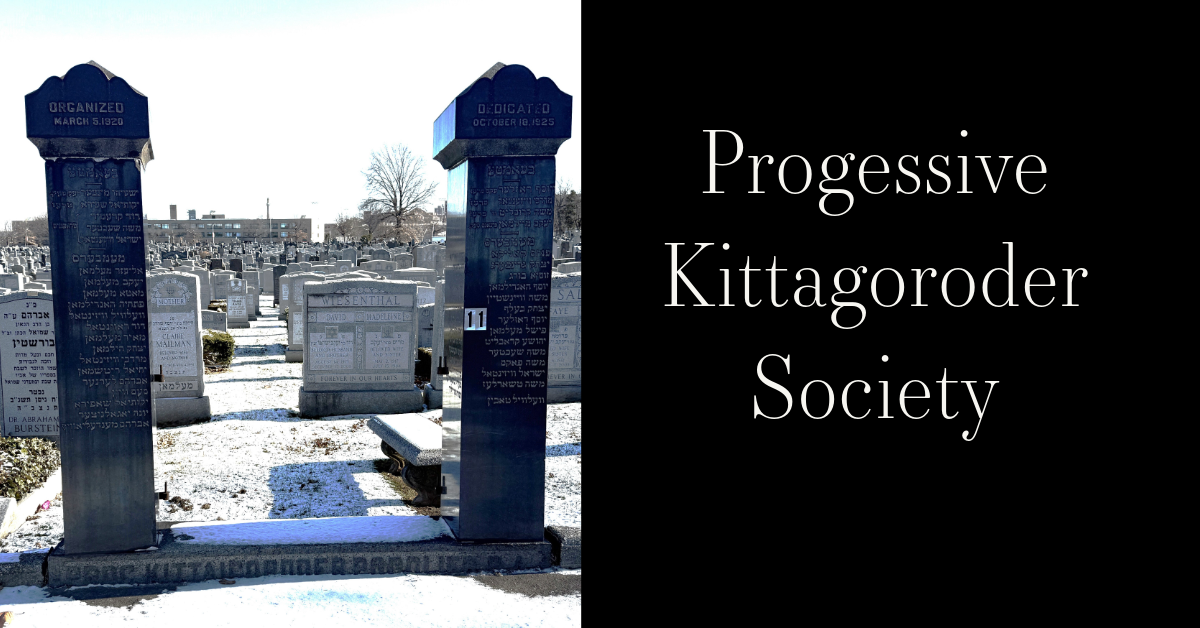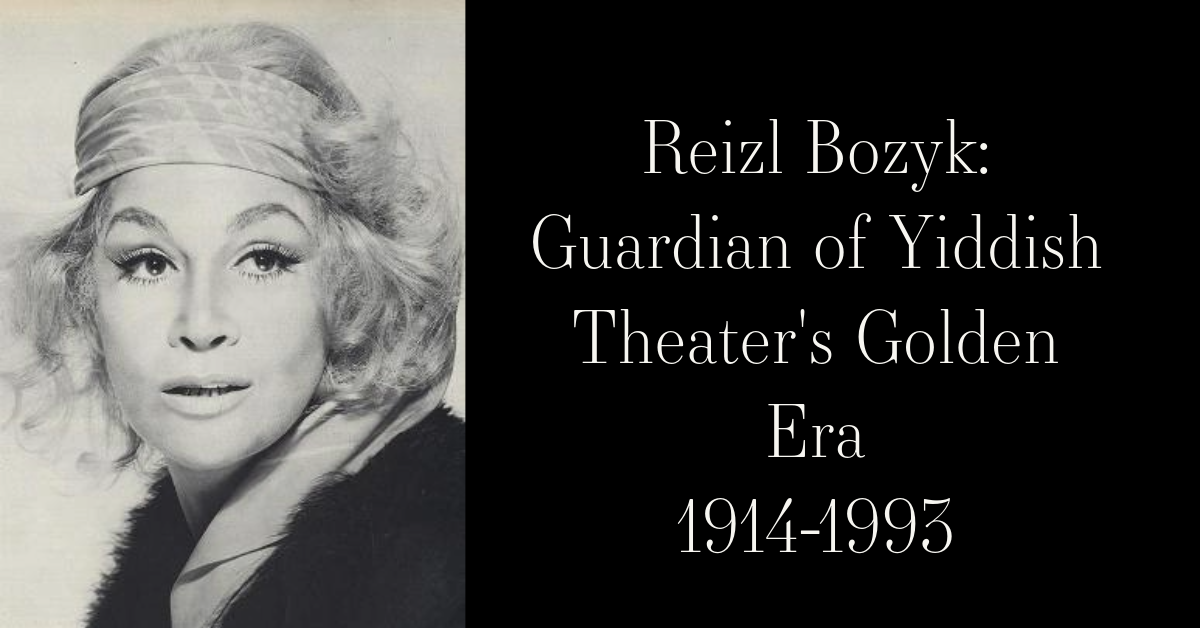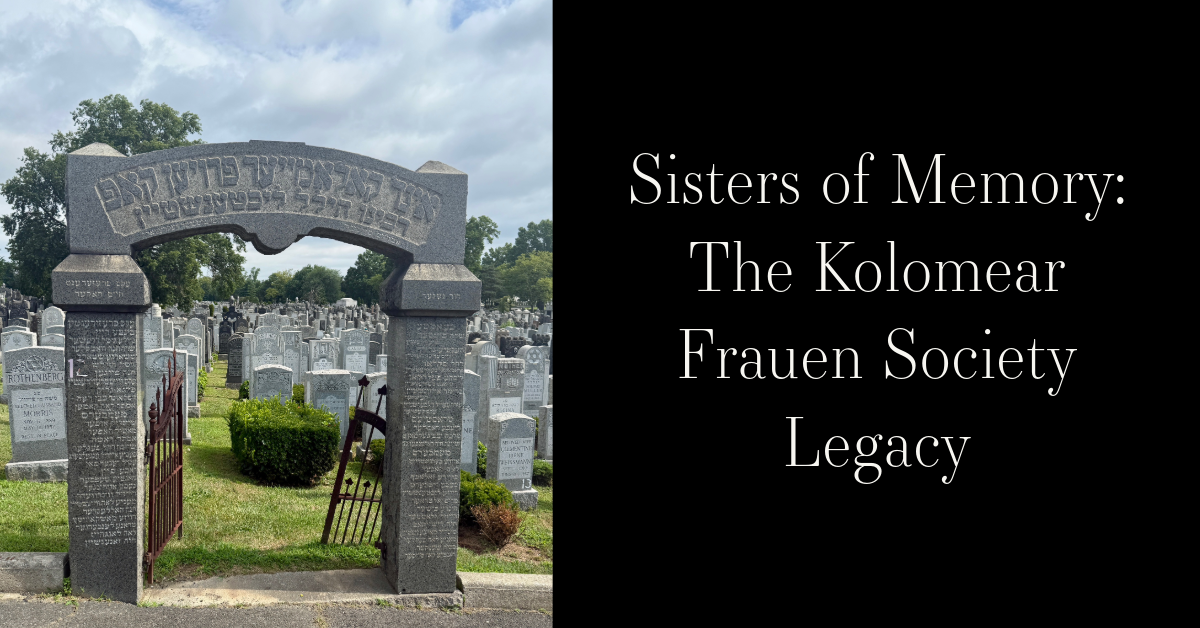Mina Bern: First Lady of the Yiddish Stage
Mina Bernholtz was born on May 5, 1911 in Bielsk, Podlaski: Poland. Her parents were lumber merchants. Mina graduated from a Yiddish primary school and attended the Yiddish Teacher's Seminary in Vilna while preparing to become a Yiddish teacher. Mina was initially put on stage when she was 7 years old.
Mina’s official theater career began in 1930 in Lodz where she lived as a young adult, moving to Warsaw to perform with other famous performers including Ida Kaminska. This was considered the heyday of Yiddish Theater in Poland. Mina had had a distant relative who was a Yiddish Theatrical figure, who helped her join the Ararat Yiddish Cabaret Theater. At Ararat, Mina was involved in variety shows that included satirical sketches and monologues. She also played at the Warsaw Scala, Kaminska Theater and the local folk theater. Mina worked with Dina Halperin and Sam Bronetski in the collective of Our Theater and she later worked with Zygmunt Turkov.
In 1930, when journalist Masha Leon once asked Mina about her stage name, Mina responded: “My maiden name is Bernholtz (the second syllable means 'wood' in Yiddish). But when I came to [the theater] in Lodz, the director said ‘kayn holtz iz zi nit/wooden she isn’t, so we must trim the wood from the name.’ And so, it was shortened to Bern.”
In 1939, Mina had a flourishing career and a young family when the Nazis attacked Poland. With other Yiddish performers, she and her daughter, Reyna Pearlman, fled east, ending up in the Soviet Union, where Mina continued to entertain during the war. In Russia Mina played with the Bialistocker Yiddish Miniatur Theater of Shimon Dzigan and Israel Shumacher.
In 1941, Mina went to a camp in Uganda where she did Children’s Theater for the Poles stationed there. In 1945, Mina traveled to Kenya and then went on to British-Mandate Palestine. Mina lived in Palestine after the War and before Israeli Statehood. She performed in Yiddish and Hebrew and was part of Palestine’s Lilalo Cabaret. She also worked with Jenny Lavitz in the Review called Rozhinkes mit Mandlen.
In 1949, Mina emigrated to the U.S.A. She moved to New York City when invited by The National Theater on Houston Street, along with her co-star and later husband, Ben Bonus. Her first New York production was “Shalom Tel Aviv.” Mina and her husband later owned and operated the Village Theater, which ran Yiddish performances.
Mina and Ben were surrounded by the world of the Yiddish Theater on Second Avenue in New York City. There were many other famous Yiddish performers such as Jacob Adler and Molly Picon currently starring in shows across all fourteen theaters which were in existence. They entertained the factory workers and the tenement dwellers and provided them with a night out with a melodramatic performance or a humorous show. At the point when the Bonus’s began performing, the Yiddish theaters had already begun their steep decline. However, Mina and Ben’s arrival on the scene enabled the theaters to remain in business for a little while longer.
Yiddish gradually stopped being the common language of the Jews who hailed from a mixture of Mediterranean countries. For a time, the Yiddish theater was able to carry on with a select few performers such as Mina and Ben who continued to put on shows from the 1950’s through the 1970’s.
Mina did not have a reputation as a dramatic artist but she was known for her cabaret singing and comedic talent. She would play a flirtatious woman in one skit, a close-minded busybody in another and an old Jewish mother in the third. When the New York Yiddish Theater started to lose its luster, Mina and Ben changed direction, becoming entrepreneurs in America. For 25 years, Mina and Ben traveled under the auspices of The Workman’s Circle, bringing Yiddish to audiences across the country. One of their big hits was the 1976 production of “Long Live Columbus!” a tribute to the American bicentennial. They went on tour throughout the United States, Canada and Latin America where they performed a variety of Yiddish reviews. At some junctures they had to design their own scenery, sew their own costumes and be the ticket sellers for their reviews.
Following their country-wide performances, Mina and Ben decided to bring their shows to Broadway. This idea resulted in a loss of tens of thousands of dollars which the couple did not even have. This loss transpired due to a sharp decrease in Yiddish theater goers as a result of assimilation, education and worldly success which ate away at the audiences Mina and Ben had previously entertained.
Mina performed for almost 70 years all over the world, had been a mainstay of the American Yiddish theater and picked up the title of “first lady of the Yiddish stage.” Mina spoke five languages, but quipped that she was proud that Yiddish is her “best.”
In the late '60s and early '70s, Mina appeared on Broadway in shows like Light, Lively and Yiddish (which she also directed), Sing, Israel, Sing, and Let's Sing Yiddish. In 1984, Mina became a widow. Looking back at the couple’s long years of extensive touring, Mina stated that she and Ben went to places “where people didn’t hear Yiddish so much so that the culture would not be forgotten. He had sort of a mission in him.” Mina’s friends said that this was also true about Mina since she continued to entertain people well into her 90’s and even joined the Folksbiene Theater after Ben’s passing.
In 2002, Mina played a Mikva (Bathhouse) Attendant in a production of Yentl based on an Isaac Bashevis Singer book. In 2005 Mina performed a one woman show about her life. She acted in 11 films and, in her later years, accepted roles in Hollywood movies for older immigrant women. Some of these roles were in “Crossing Delancy (1988), Avalon (1990) and I’m Not Rappaport (1996). Her other film credits include "Little Odessa," "Celebrity," "It Could Happen to You" and "Flawless" with Robert De Niro.
Mina’s friend, Ms. Reissa stated, “She (Mina) could be feeling terrible, but the minute she hit the stage, she was superlatively alive. She always made sure she had a good part and always tried to improve her lines and it was all for the best.”
Mina starred in Abraham Goldfaden’s famous musical. Akeydas Yitskhok (The Binding of Isaac), at the JCC of Manhattan. Regarding this performance, she remarked “Yiddish is such a rich language. As an actress I can convey sorrow, pain, fear and pleasure without having to look for a word,”
After a 2006 performance in New Rochelle, New York, a theater critic reported that Bern “belted out her Yiddish standards like it was 1955 on the Lower East Side.” Mina’s made her last stage appearance in 2005, when she performed her one-woman stage memoir, “Mina Bern: A Life on the Stage, A Personal Memoir Told in Song and Story” at the JCC in Manhattan, under the auspices of The National Yiddish Theatre/Folksbiene.
Mina received several entertainment awards. In 1988, she was awarded a Workman’s Circle Lifetime Achievement Award. In 1999, Mina received the Obie Award for her performance in Sweet Dreams at the Folksbeine Theater as well as for her “outstanding achievement.” In 2002, she was given a Lifetime Achievement Award in the Yiddish Theater from Governor George E. Pataki at a celebration of Jewish Heritage at Hunter College.
Mina Bern died from heart failure on January 10, 2010 at her home on the Lower East Side of Manhattan at the age of 98. She was buried on the grounds of the Yiddish Theatrical Alliance, Mount Hebron Cemetery, Flushing, N.Y.
FILMOGRAPHY:
Brooklyn Babylon (2001) .... Nanna
Flawless (1999) .... Mrs. Spivak
Celebrity (1998) .... Elderly Homeowner
The First Seven Years (1998) (TV) .... Landlady
I'm Not Rappaport (1996)
Everything Relative (1996) .... Grandma Kessler
Little Odessa (1994) .... Grandma Tsilya
It Could Happen to You (1994) .... Muriel's Neighbour
Pressure Drop (1994) .... Ida Potashner
Avalon (1990) .... Alice Krichinsky
Crossing Delancey (1988) .... Would-be Victim
Tenement (1985) (as Mina Bern Bonas) .... Ruth
BROADWAY:
Original Broadway Production, 1990
Performer
L'Chaim to Life
Original Broadway Production, 1986
Performer
The Special
[Off-Off-Broadway]
Original Off-Off-Broadway Production, 1985
Performer
Light, Lively and Yiddish
Original Broadway Production, 1970
Zelde
Sing, Israel, Sing
Unknown, 1967
Performer
Let's Sing Yiddish
[Broadway]
Original Broadway Production, 1966
Performer
Baile
Minstrel
DIRECTOR:
Light, Lively and Yiddish
[Broadway, 1970]
Director
Sing, Israel, Sing
[Broadway, 1967]
Director
Let's Sing Yiddish
[Broadway, 1966]
Director
WRITER:
Light, Lively and Yiddish
~Blog by Renee Meyers


